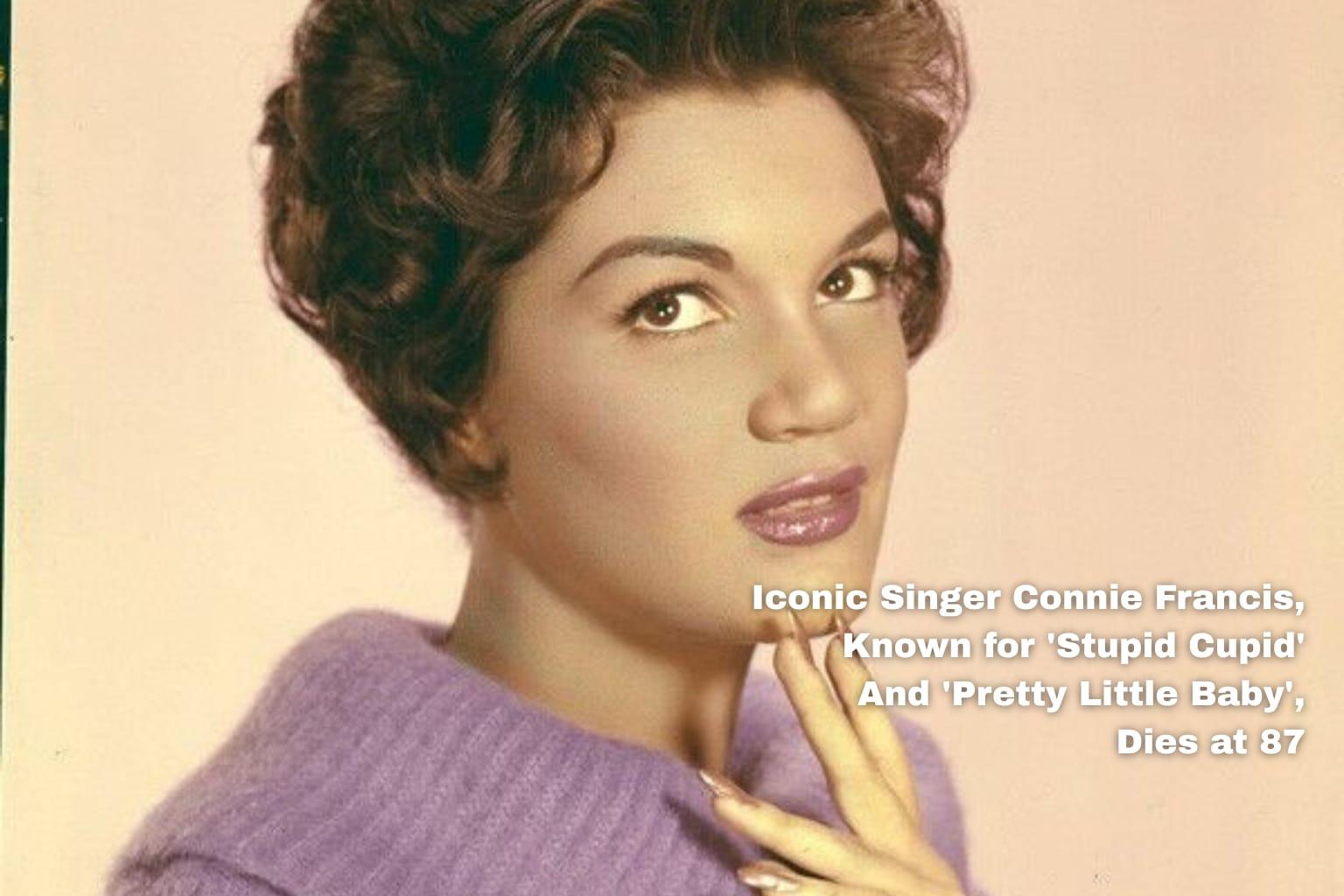John Smith
Alice. 'I've read that in.

Connie Francis, the legendary voice behind timeless hits like "Stupid Cupid" and "Pretty Little Baby," has passed away at 87. Discover the story of the trailblazing pop icon whose music shaped generations—and how her legacy continues to inspire in 2025.
Connie Francis, the beloved pop singer who gave the world hits like “Stupid Cupid” and “Pretty Little Baby,” has passed away at the age of 87. Her voice, once a staple on jukeboxes and radios around the globe, became a soundtrack for generations. On July 16, 2025, she took her final bow in Pompano Beach, Florida, surrounded by loved ones.
Born Concetta Rosa Maria Franconero in Newark, New Jersey, Francis began her journey in music at a young age. Encouraged by her father, she started performing on local talent shows and soon caught the attention of record producers. But it was her 1958 breakthrough with “Who’s Sorry Now?”—revived by a performance on American Bandstand—that changed everything. Practically overnight, she became America’s sweetheart and a defining voice of the late 1950s and early ’60s.
Her string of chart-topping hits included “Lipstick on Your Collar,” “Where the Boys Are,” “Everybody’s Somebody’s Fool,” and of course, the flirty anthem “Stupid Cupid.” She became the first female solo artist to top the Billboard Hot 100, paving the way for future generations of women in pop music.
What made Francis exceptional wasn't just her voice—it was her ability to connect across cultures. She recorded in more than a dozen languages, building a truly international fanbase. Her songs in Italian, German, and Spanish resonated deeply in countries far from her New Jersey roots. Whether singing a heartbreak ballad or a joyful pop tune, her sincerity always came through.
Behind her public success, however, lay a personal journey marked by both triumph and tragedy. In 1974, she was the victim of a violent assault in a hotel room, an event that derailed her career and deeply affected her mental health. Diagnosed with bipolar disorder, Francis spent years battling emotional and psychological challenges. Yet, she was remarkably open about these struggles—particularly in her 1984 memoir Who’s Sorry Now?—becoming one of the first public figures to speak candidly about mental health in the entertainment industry.
She endured personal loss as well, including the murder of her brother and the heartbreak of four failed marriages. But through it all, Francis never lost her love for music or her desire to return to the stage. Her career saw revivals in the 1980s and ’90s, with Las Vegas performances, overseas tours, and even a re-release of her classics.
In a touching twist, Connie Francis found herself back in the spotlight in her final year, thanks to the internet. In early 2025, her 1962 track “Pretty Little Baby” went viral on TikTok and Instagram, with millions of young creators using it in nostalgic and romantic videos. The trend introduced her to an entirely new generation who fell in love with her vintage charm and timeless voice. Francis, always gracious, responded with warmth, expressing her joy at seeing her music live on in such an unexpected way.
Her passing followed complications from a pelvic injury in early July. Though she had been in stable condition initially, her health declined in the days that followed. News of her death sparked an outpouring of tributes from fans, celebrities, and fellow musicians. Many shared stories of discovering her music through parents or grandparents—proof of how deeply her songs remained embedded in cultural memory.
With over 100 million records sold and more than 35 Top 40 hits, Connie Francis holds a place among the most successful female recording artists in history. But beyond the numbers, she leaves behind a legacy of perseverance, vulnerability, and above all, music that touched the soul.
She wasn’t just a star—she was a survivor. A pioneer. And a voice that, even now, refuses to fade.
As we remember Connie Francis, we don’t just mourn a loss—we celebrate a life that gave the world love songs, dancing tunes, and a deeper understanding of the human heart. Her music still plays. And her voice still sings.
Your email address will not be published. Required fields are marked *